Through tariffs, President Trump may inadvertently pave the way for a reordering of trade relationships and the emergence of new economic blocs.
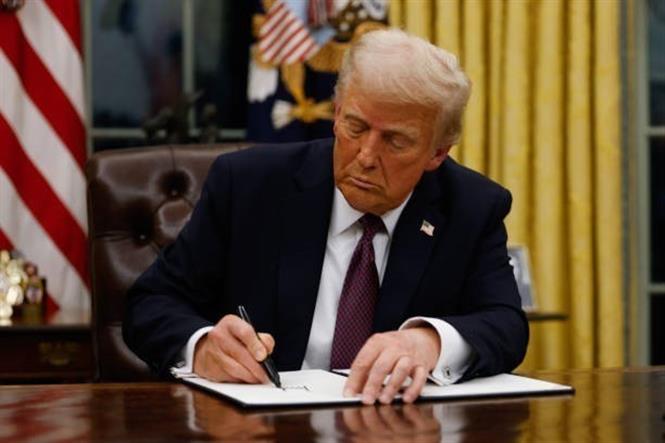
US tariffs – both threatened and imposed – on trading partners including China, Canada, Mexico and the EU have quickly sparked a wave of retaliatory measures. The latest items in President Donald Trump’s sights are steel and aluminum – with a 25% tariff announced on all imports. But these tariffs have not only disrupted well-established trade flows, they have also raised concerns about the future of globalization.
Amid this uncertainty, however, there may be a glimmer of hope. Through tariffs, President Donald Trump may inadvertently pave the way for a reordering of trade relationships and the emergence of new economic blocs. Such partnerships could foster more resilient, regionally focused economic cooperation.
Diversify trade relationships
Mr Trump’s decision to impose tariffs on major trading partners breaks the basic tenets of the gravity model of trade. According to this theory, trade between two countries is largely determined by their economic size and geographic proximity. For example, imposing tariffs on the close economic relationship between the US and Canada — facilitated by their shared border — essentially increases the distance between the two countries by increasing costs and reducing the volume of bilateral trade.
However, these disruptions may inadvertently encourage diversification of trade relationships. As companies and governments seek to mitigate the risks associated with tariffs, they may begin to explore new markets and alternative supply chains. This could ultimately lead to a more decentralized and potentially more stable global trading system.
But as President Trump continues to test the limits of his power, he is finding that it is not easy to resist “gravity on trade.” He has reduced tariffs on Canada and Mexico, while China has responded with retaliatory measures.
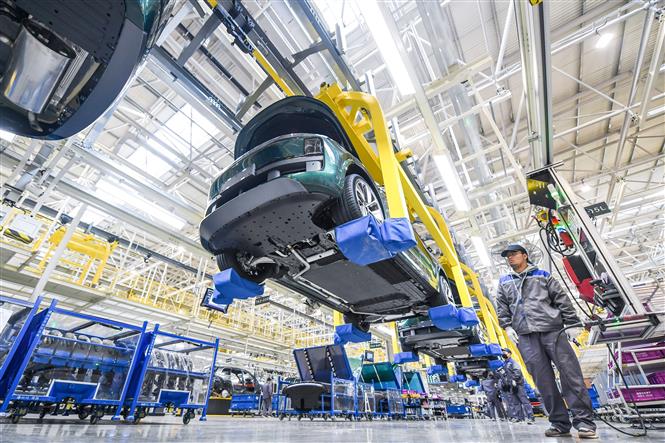
Strengthening regional alliances
Another positive effect of the trade war could be the strengthening of regional alliances. As traditional trade flows are disrupted, countries are increasingly motivated to strengthen ties with neighboring economies.
Canada and Mexico, long seen as natural trading partners for the United States, could shift to deepening economic cooperation. They could also seek bilateral deals with other partners as well as seek new markets, strengthening ties with China and Japan.
The USMCA (United States-Mexico-Canada Agreement) provides a solid foundation for trade. But efforts to scrap the deal could prompt Canada and Mexico to accelerate efforts to build closer economic ties with other regions, reducing their exposure to the US market.
Mr Trump’s planned steel tariffs threaten to undermine the USMCA, which was designed to promote integrated supply chains and low-tariff economic cooperation among the three countries. That could escalate trade tensions across the bloc, force a reassessment of key terms of the trade deal and destabilise established relationships.
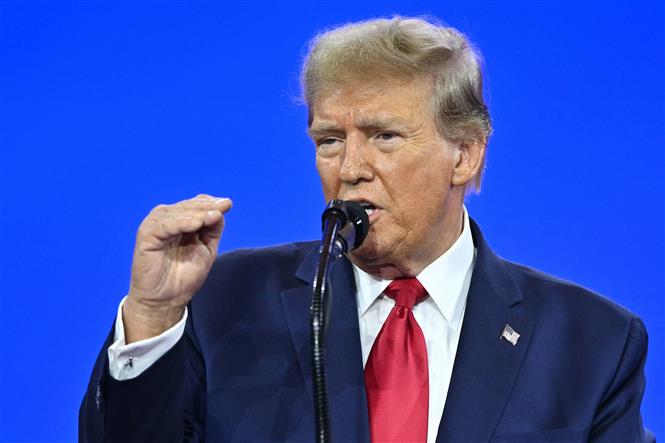
Prospects for the European Union
Imposing tariffs on the EU could lead to deeper integration among member states. Faced with new pressure from the US, the EU could accelerate initiatives to strengthen internal trade, harmonize regulations and promote intra-European supply chains.
Member states, led by France, have backed a united response to US protectionism, hoping to demonstrate strong political commitment to resist pressure from President Trump.
Prospects for Asia-Pacific
China, as the world’s second-largest economy after the United States, may seek to expand its trade relationships in the Asia-Pacific region and beyond. Since China’s economic growth model is export-driven, it may seek closer partnerships with regional partners and invest in new trade agreements. This could create an even more integrated Asian economic community.

A new economic order
Whatever the outcome, these tariff wars signal a reordering of the global economic landscape. Such disruptions, while painful in the short term, can trigger long-term changes that rebalance economic systems. The natural trading partner hypothesis reinforces this view by highlighting how countries that share cultural, historical, and geographic ties are likely to deepen their economic ties in the face of external shocks.
In this new order, traditional superpowers may find themselves challenged by united responses from other countries. By imposing tariffs, the US risks isolating itself from these emerging alliances, while its major trading partners may unite in an effort to counter Washington’s growing protectionism.
According to VNA
Source: https://doanhnghiepvn.vn/quoc-te/cuoc-chien-thue-quan-cua-tong-thong-trump-nhung-mat-tich-cuc-it-ai-ngo-toi/20250213112121662



![[Photo] The moment Harry Kane lifted the Bundesliga trophy for the first time](https://vphoto.vietnam.vn/thumb/1200x675/vietnam/resource/IMAGE/2025/5/11/68e4a433c079457b9e84dd4b9fa694fe)

![[Photo] Prime Minister Pham Minh Chinh chairs the fourth meeting of the Steering Committee for Eliminating Temporary and Dilapidated Houses](https://vphoto.vietnam.vn/thumb/1200x675/vietnam/resource/IMAGE/2025/5/11/e64c18fd03984747ba213053c9bf5c5a)
![[Photo] National Assembly Chairman works with leaders of Can Tho city, Hau Giang and Soc Trang provinces](https://vphoto.vietnam.vn/thumb/1200x675/vietnam/resource/IMAGE/2025/5/11/c40b0aead4bd43c8ba1f48d2de40720e)



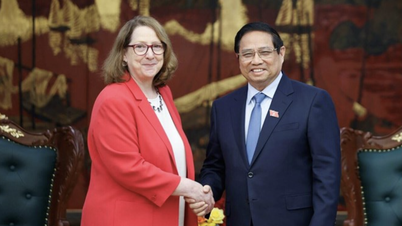




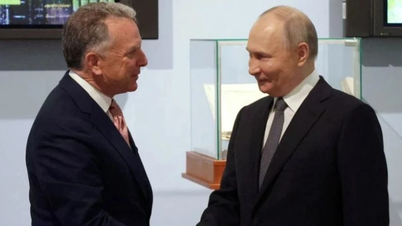
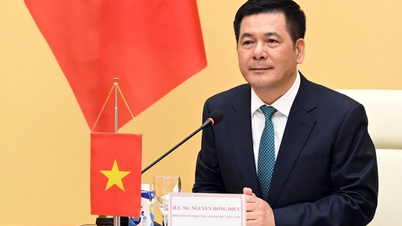



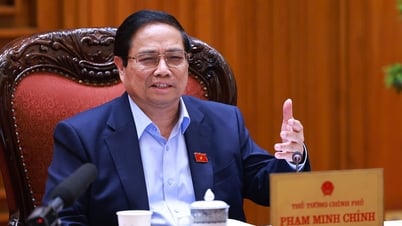
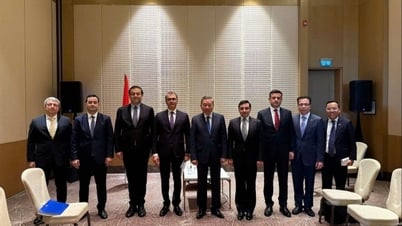











































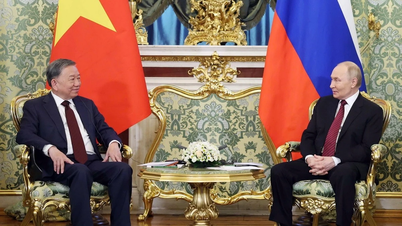
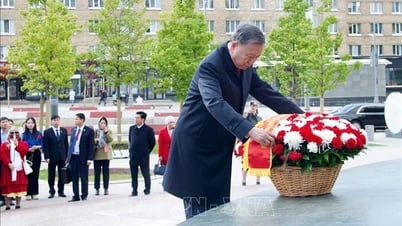

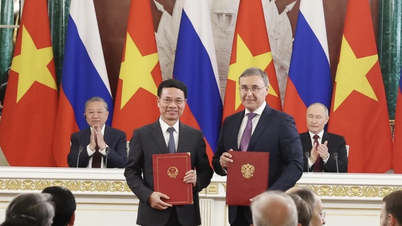
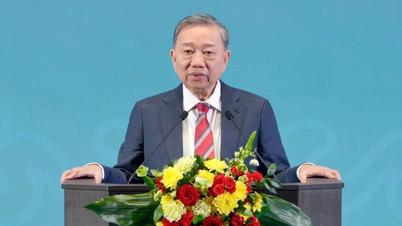















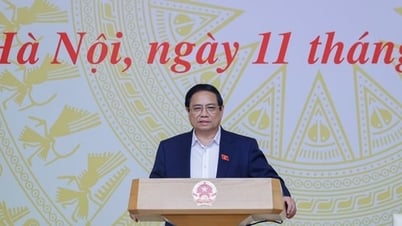



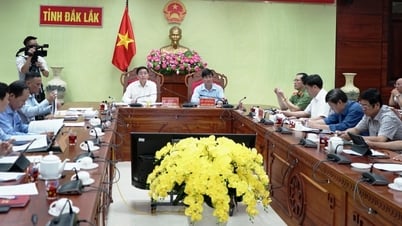











Comment (0)